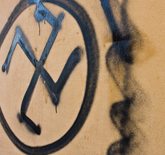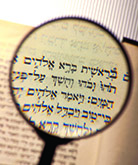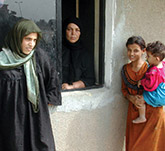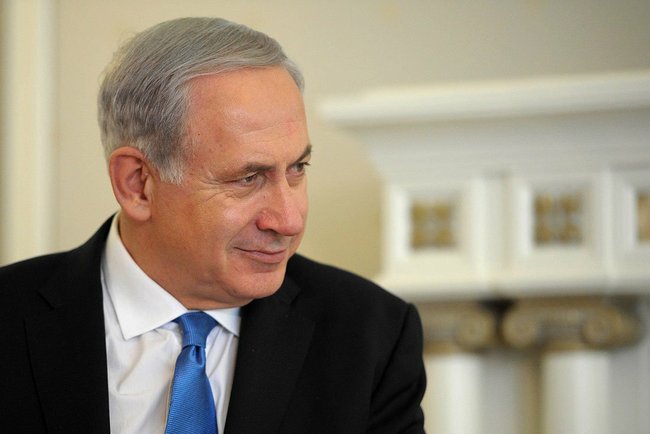

{image_1}They can tell from the angle of a footprint that an explosive is in the area. When a suspect is on the run, they can pinpoint his location in minutes. The soldiers of the Bedouin Scouting Unit stand on the front lines of Israel's battle against terror.
Continue Reading »
{image_1}According to a new report on global anti-Semitism, 2012 registered a 30% increase in anti-Semitic acts compared to 2011. These acts include vandalism and direct threats on Jewish lives. Numbering 686 in 2012, they followed two years of general decline in such incidents. Among the countries listed, France has the dubious honor of first place with 200 anti-Semitic acts registered. The United States saw 99 acts, Britain 84, Canada 74, and Australia three.
Continue Reading »
{image_1}“The threats that we face in the field of information security are growing significantly, but we have the ability to handle them,” Chief of the IDF [Israel Defense Forces] Ground Forces Command Maj. Gen. Guy Zur said at an information security conference.
Continue Reading »
{image_1}US senators have unanimously united in support of Israel. The vote came as the United States Senate considered Iranian efforts to acquire nuclear weapons.
Continue Reading »
{image_1}Israel could soon face a heavy burden of powerful and effective weapons, if the crisis in Syria crosses the border.
Continue Reading »
{image_1}The prohibition in the Torah (Gen.–Mal.) against boiling a kid in its mother’s milk provides the basis for the practice of separating meat from dairy. Cheesy sauces and cream-filled desserts are not served at the same meal as a juicy steak, nor is butter for your broccoli or milk for your coffee. Israelis have been very innovative, however, and non-dairy substitutes abound, to be eaten with delight alongside your beef roast or lamb chop.
Continue Reading »
{image_1}According to Jewish tradition, “after the destruction of the Second Temple, prophesy became the providence of fools.” The next real prophets, it is believed, will only appear when the Messiah arrives. Shmuel Portman Hapartzi, an ardent Chabadnik [follower of the Chabad movement within orthodox Judaism], is convinced salvation is just around the corner.
Continue Reading »
{image_1}As part of a unique “Combatants for Peace” trip to Yad Vashem, eight Palestinian Authority residents visited the museum to learn of the fates of European Jews during the Holocaust. “This was a jolting experience for me,” said Ahmed al-Jaafari, a 43-year-old Deheishe refugee camp resident. “I saw the reactions of people who were here and wanted to experience it for myself. I heard and read about and saw movies on the Holocaust, but nothing comes close to a visit in which I can see it with my own eyes. I don't understand how the world conspired [to commit] a crime like this.”
Continue Reading »
{image_1}Positive interaction between Jews and Arabs is rarely mentioned in the international news, but it is increasingly common to hear positive stories in Israel.
Continue Reading »
{image_1}On the eve of Holocaust Memorial Day (Yom HaShoah), Benjamin Netanyahu remembered the loss of the Jewish people during the Holocaust and went on to talk about the current threat of annihilation that Israel faces from Iran. “There are those who wish to extinguish our light. Iran openly declares its intent to destroy Israel and is pursuing all means to achieve that goal.” Netanyahu quoted Iranian clerics as saying that “Zionists are microbes and bacteria. The Jews are filthy people who spread disease.”
Continue Reading »All logos and trademarks in this site are property of their respective owner. All other materials are property of Bridges for Peace. Copyright © 2025.
Website Site Design by J-Town Internet Services Ltd. - Based in Jerusalem and Serving the World.